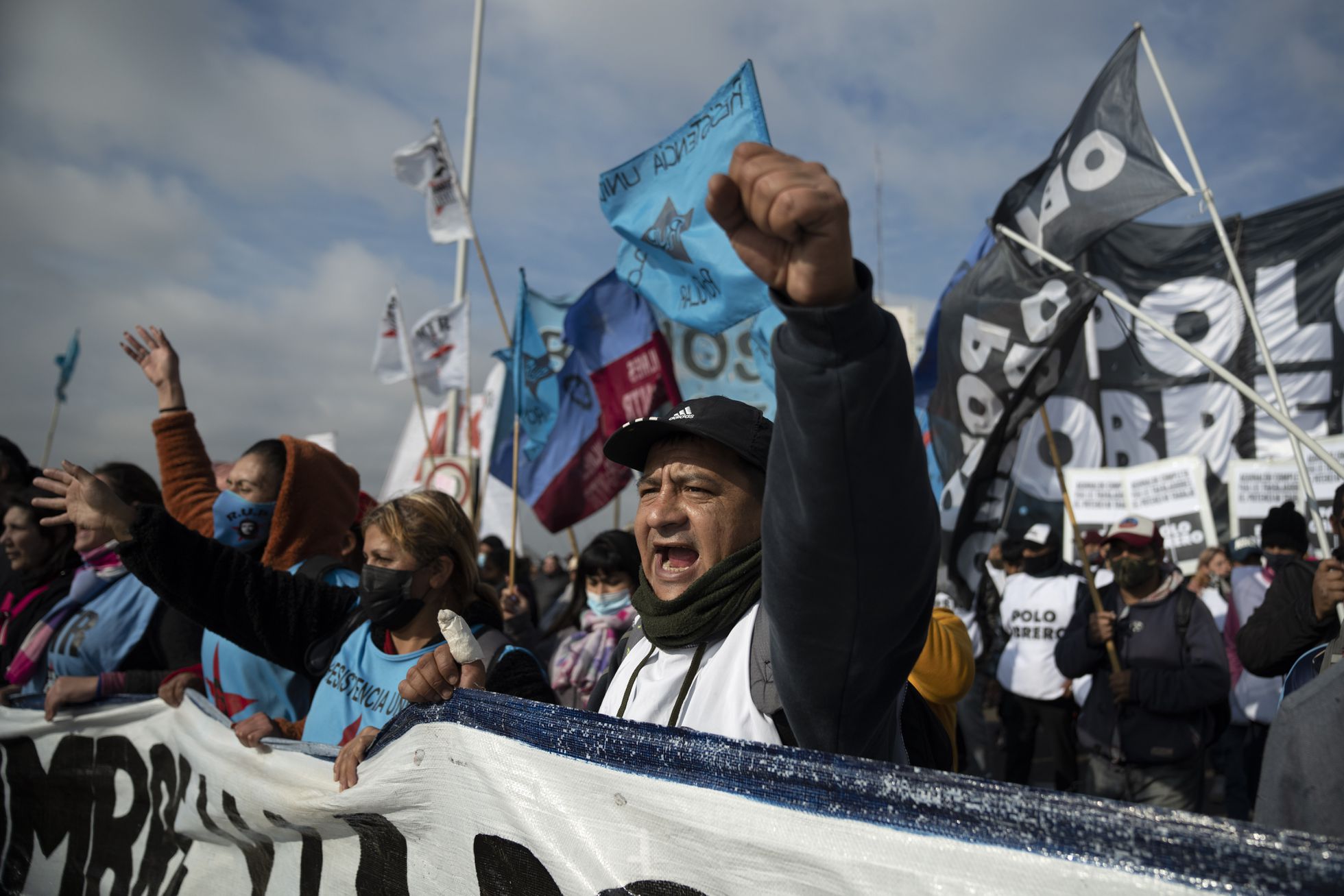By Federico Rivas Molina
RIO DE JANEIRO, BRAZIL – Cristina Fernández de Kirchner has shown a great ability to add new enemies. On Monday, during a rally organized by related unions in Avellaneda, in the southern industrial area of the city of Buenos Aires, she demanded that the Government of Alberto Fernández, where she is vice president, regain control of social plans.
Kirchner does not like that two large picketing groups, the Evita Movement and Barrios de Pie, have leaders in high positions in the Ministry of Social Development, the portfolio in charge of managing part of the billions of dollars, some US$4 billion, that each year the Argentine State allocates to help the poorest.
Kirchner considered in her speech that “outsourcing” that help in these groups “is not Peronism”, a movement that has made closeness to the poorest part of her political DNA. Behind Kirchner’s claim there is a poisoned dart to Fernández, who today has become the target of all her attacks, and an effort to recover the streets in those districts where the picketing movements have gradually displaced the traditional structures of unions and parties.
Read also: Check out our coverage on Argentina
Each Cristina Kirchner speech is a long list of reproaches to Fernández, the figure that she herself placed in the presidency just over two years ago. The attacks are nuanced with long dissertations on the economy, always self-referential quotes and recommendations of what should be done and the president does not.
In the past, she has called for the departure of ministers, criticized economic policy and strategies against inflation, or criticized the agreement with the International Monetary Fund signed last January. But she had never shot into the heart of social movements or picketers.

“I want to be honest: we have 7% unemployment but a million social plans,” said Cristina Kirchner. “With this unemployment we should have fewer social plans. The State must control social policies, which cannot continue to be outsourced. That is not Peronism, Peronism is work, hard work, you cannot depend on a neighborhood leader who goes up and down, no!”, she said.
In case there were any doubts that she was talking, above all, about the Evita Movement, she closed her speech with praises to the founding fathers of the movement: Perón and Evita. “If Evita saw them, mommy… mommy!” she added. The public could not be the most suitable: unions gathered in the CTA, an alternative current to the traditional CGT, and mayors from the suburbs of Buenos Aires who respond to it.
To understand Kirchner’s new onslaught against Fernández, a bit of history is needed. Social movements were born with the crisis of the 1990s, when Carlos Menem’s neoliberal policies triggered unemployment. Those who remained outside the labor system, and therefore outside the unions, gradually grouped themselves in movements of the unemployed.
To make themselves heard, they resorted to picketing or blocking streets and highways. The number of picketers soared with the 2001 crisis, while they grew in organization. Work cooperatives and even trade training schools were formed. The Peronist unions never got along with these movements, which demanded rights but were outside the labor system.
The picketers have great destabilizing power, but they also guarantee social peace. With each government, whatever it may be, they sold peace in exchange for economic aid. With the arrival of Fernández to power, in 2019, they took another step: they joined the power structure. Emilio Pérsico and Fernando Navarro, from the Evita Movement, and Daniel Menéndez, from Barrios de Pie, are Alberto Fernández officials.
From Social Development they administer the social plans, to the chagrin of the movements that have been left out. But it is not the war with these groups that bothered Cristina Kirchner so much on Monday. It happens that the government picketers have advanced little by little over a forbidden territory.
The one that the vice president assigns to La Cámpora, the Kirchnerist movement led by her son, Máximo. Kirchnerism sees every day how it loses control of the street in those suburbs where its electoral base lives. It is, basically, a fight for control of the territory and the votes that emanate from there.
President Fernández took up the gauntlet thrown the day before by his vice president on Tuesday. “She often says things that are unfair,” said Fernández about Kirchner’s remarks. “I want to thank the social organizations that helped us to contain the most vulnerable sectors and bring solidarity where solidarity did not exist,” he added immediately. Yet the piqueteros movements alluded to were less diplomatic. “Weak in memory and gratitude, Cristina declared war on all social movements in Argentina,” said Luis D’Elia, a piquetero leader who back in the 1990s was already blocking streets in the suburbs of Buenos Aires.
The memory that D’Elia demands goes back to the times when the picketers supported Kirchnerism and Cristina. “The way she spoke hurts us,” said Fernando Navarro, of the Evita Movement. “Obviously I do not share her words. With great sadness, because Cristina is a reference in the space, without a doubt”, added Daniel Menéndez, from Barrios de Pie. “Wanting to reduce the task of social movements to the top or bottom of a plan seems to me to be a very short-sighted attitude regarding the task being carried out,” Menéndez complained.
Fernández is a weakened president, under daily criticism from Kirchnerism, the largest movement in the coalition that today keeps him in power. The social movements that support him are his main political support. To attack them from within is to blow up one of the last tricks left to the president.
With information from El País

